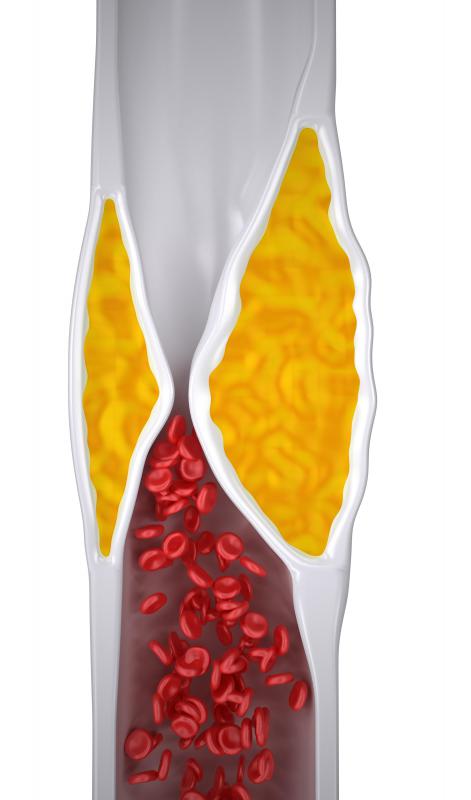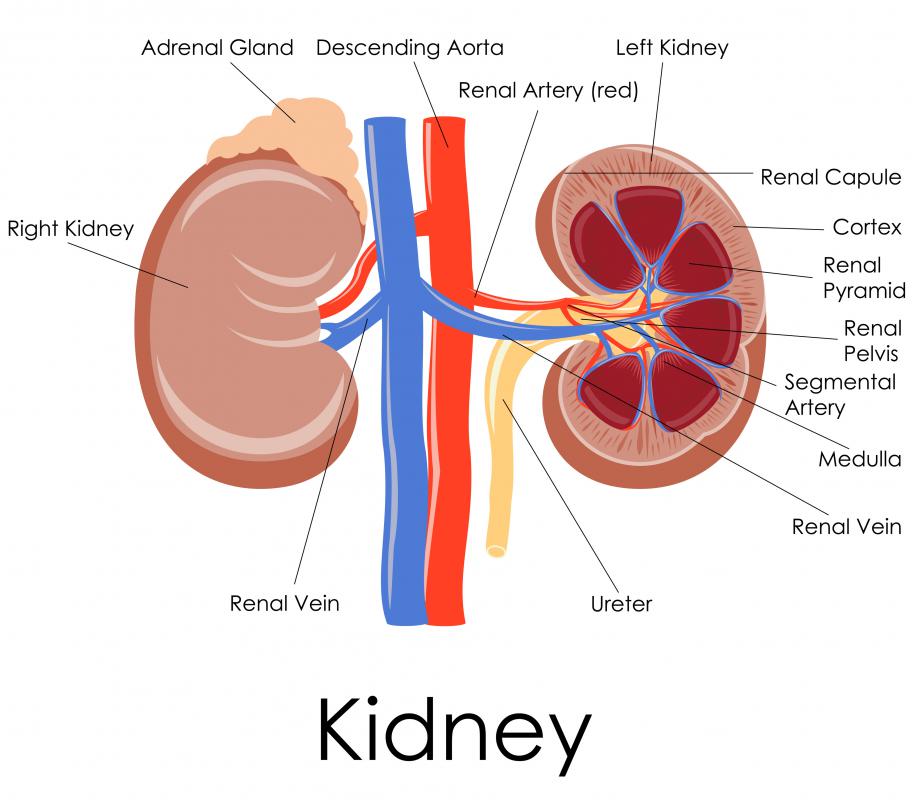At WiseGEEK, we're committed to delivering accurate, trustworthy information. Our expert-authored content is rigorously fact-checked and sourced from credible authorities. Discover how we uphold the highest standards in providing you with reliable knowledge.
What Is Renal Ischemia?
Organs require a steady supply of fresh blood to function properly. When the kidneys do not have an adequate amount of blood, renal ischemia can result. This medical condition, sometimes termed nephric ischemia, can be due to constricted arteries, or blockage of these vessels. While this type of ischemia can be reversible, it may also lead to potentially fatal consequences. Acute kidney injury is one consequence of this problem, and this deprivation of fresh blood is one of the largest causes of complete renal failure.
Injury, disease states, and even certain types of surgery can be triggers for renal ischemia. Often, this condition begins with a temporary constriction of blood vessels to the kidney, or a minor blockage. Immune responses in the renal area can then lead to inflammation and further disruptions to blood flow as the tissue attempts to deal with these issues. Over time, this may lead to long-lasting vasoconstriction, or a contracting of the blood vessels, which inhibits blood flow. Lower amounts of blood are able to enter the glomerules, special tissue that helps to filter toxins, as a result of this condition, which can further increase damage and contribute to acute kidney failure.

Renal ischemia symptoms are not always immediately apparent, and can depend on the extent of the inhibition of blood flow and extent of tissue damage. Pain felt near the kidneys is sometimes a sign, and other symptoms can include feelings of weakness, hypertension, and nausea. Severe cases of renal ischemia that lead to kidney failure can lead to the buildup of toxins as these organs are unable to remove them from the body as quickly or effectively as they normally would. Dehydration, difficulty urinating, and changes in urine color may also result in some of these cases.

Treatments for renal ischemia can vary based on the causes of the condition and other individual differences. Women sometimes have a higher recovery rate for this health issue, which may be related to their estrogen levels. Hormone therapies like estradiol are sometimes given to both men and women, especially for post-surgical ischemia. Vasodilators are drugs that expand the blood vessels, and occasionally they may be used as a treatment, but due to the kidneys' response to damage from this condition, they may not always be effective. Dialysis, a treatment that removes waste from the blood outside of the body, may be required in the most extreme cases of kidney ischemia.
AS FEATURED ON:
AS FEATURED ON:

















Discuss this Article
Post your comments